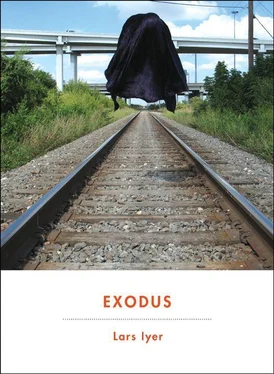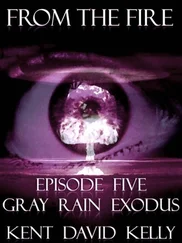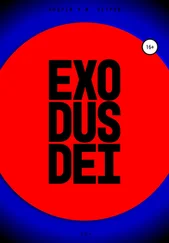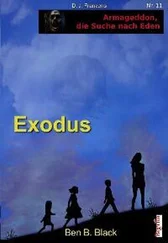The train to Dundee.
W. looks through my notebook. Notes on Robert Walser’s confinement. Names and dates. Ah, very interesting, W. says. Didn’t Walser volunteer to be taken into Herisau sanatorium? Didn’t he want to go there for the peace and quiet ? He’d had enough of the world. Enough of the writer’s life. No more poverty! No more garret rooms! No more rejection letters! And no more writing! W. says. No more of the will to write!
At the sanatorium I have the quiet that I need. Noise is for the young. It seems suitable for me to fade away as inconspicuously as possible .
One lies like a felled tree, and needs no limbs to stir about. Desires all fall asleep, like children exhausted from their play .
To fade away; to lie like a felled tree; to be blown around the world like a leaf. What Zen master has ever wanted to achieve more?
Walser wanted to disappear, W. says. He wanted to dissolve into the everyday like some kind of mystic of the ordinary . It’s what I’ve wanted, he knows that, W. says: it’s what I’ve sought in my years of unemployment. Haven’t I wanted to become a man without qualities ? W. says. Haven’t I said I wanted the everyday to smooth away my distinctness, like a river does to a pebble?
It’s what gives me a strange kind of wisdom , W. says. A strange kind of religiosity ! Sometimes, he’s even thought of me as a kind of saint , W. says. As a holy man of the banal; a hermit of the empty hours.
Haven’t I been a kind of suburban Saint Anthony: a man who ventured into the deepest of suburban deserts? Haven’t I wrestled with the most banal of demons, and passed obscure trials which have left others drunk or dead?
What vacancies I have known! What boredoms! What diffuse despairs! The everyday still clings to me like bits of shell to a hatching chick, W. says. It’s why, in the end, he has a kind of respect for me. For isn’t the everyday the contemporary equivalent of the Biblical desert?
The next page in my notebook. Notes on Hölderlin’s confinement. Pallaksch , W. reads. — ‘What does that mean?’ That was the word Hölderlin repeated to himself in the thirty years he spent mad, I tell W. Pallaksch! he sang out, as he played his piano madly. Pallaksch! he cried up to the night, when he couldn’t sleep for mania.
Pallaksch!: that should be my word, too, W. says. My word for what roars in everything I have written or tried to say. He hears it in my stuttering, my stammering. In the ‘hellos!’ that I boom out to near-strangers. And isn’t pallaksch! what I’m trying to say when I use the middle voice? There was a dampening. There was an infestation of rats. There was a proliferation of Japanese knot-weed . Pallaksch! Pallaksch!
Faecal emergencies come, one after another, W. says. Toilet bowls are spattered. The gods, blind and deaf and mad, are screaming. The sky is darkening. The desert is growing. He can smell sulphur, W. says. He can see black wings … Pallaksch! Pallaksch! Pallaksch!
Kierkegaard foresaw us , W. says, flicking through his notebook. He knew we were coming. Why else would he write so many pages on the dangers of religious enthusiasm , of drunken religiosity and of religious phantasmagoria?
‘ The despair of possibility is a lack of necessity ’, Kierkegaard says. Ah, Kierkegaard knew us well, W. says. The fantastic, the unlimited : this is what Kierkegaard most abhors. The dangers of an imagination unlimited by anything concrete.
Hasn’t our inclination always been towards the vague, the amorphous? Haven’t we always tended towards the grandest of vistas, the most epic of pronouncements?
We’ve taken drunkenness and ecstasy for religion, W. says, when really religion is sobriety and steadfastness. We’ve taken unbridled speculation and cosmic pathos for philosophy, W. says, when really philosophy is rigour and argument …
W. tells me of the legend among Essex postgraduates of the last thinker , the thinker of the end of times, the thinker of the alpha and omega of thought.
Of course, you’ll never be able to tell who the last thinker is, W. says. He’ll look like anyone else. At least that’s how W. sees it: the last thinker himself won’t understand his significance, like a god who’s forgotten he’s a god. Like an amnesiac Messiah.
Perhaps it’s the last thinker W. seeks, when he attends early morning conference sessions. Perhaps that’s what he looks for in the thinkers he invites to stay with him in his home. W.’s waiting, in his own way, he says. At any moment, his guest will be revealed in his glory. At any moment, it will be the last thinker, the Messiah of thought, who sits across from him.
Is Lars the last thinker? W. sometimes catches himself wondering, as he walks beside me on the street. Is Lars the thinker of the end of times? he muses sometimes, watching me eat my chips, tomato ketchup staining my jumper. Probably not, W. thinks.
From the greatest stupidity, the greatest thought, W. sometimes says to himself. Will the last thinker — the thinker who will wrap it all up, the Messiah of thought — be distinguishable from a perfect idiot? The last thinker, the perfect idiot: they’re versions of the same figure, in W.’s imagination, he says. They’re the same person, viewed in different ways.
Is idiocy the path to thought, or thought the path to idiocy? Is perfect thought the goal, or perfect idiocy? W.’s not sure of the answer.
W. would be impressed by my studies in the Bible — you say studies in the Bible, not of the Bible, W. says — if I weren’t so drawn to the apocrypha. And not just the official apocrypha, but the apocryphal apocrypha.
I have a taste for the spurious, W. says, for dubious angelology and extravagant miracles. I like the Gnostic gospels in which Jesus kills dragons with death-rays from his eyes. I like the vignettes of the beasts of the desert kneeling before the divine child, and of the palm-trees bowing down so the holy family can pick their fruit.
And haven’t I spoken to him of hoping to find a caped Jesus, a flying Jesus, a gospel of the superman ? I must take my Biblical studies more seriously, W. says.
My idiocy draws me closer to God than he is, W, says, and all the more because I profess no belief in God whatsoever. What does God mean to me? Nothing, says W., but on the other hand — everything, because it means nothing.
God means too much to him, that’s his trouble, W. says. The idea of God. But I have no idea of God. I have no ideas, and this is what saves me.
Leuchars. Invergowrie. The farther north we go, W. says, the more civilised it becomes. The more socialist! Scotland is the refuge of socialism, W. says. Think of Red Clydeside! Think of the Radical War!
Scotland is closer to the social democracies of Scandinavia, that’s what does it, W. says. Scotland breathes Scandinavian air. He’s always been impressed by Scandinavian social democracy, W. says. High public spending! The redistribution of wealth! Universal health care! Early retirement! These are the signs of a real civilisation, W. says.
The only future for Scotland is to dissolve the Union, W. says. To dissolve it, and then set itself adrift like the stone raft of Saramago’s novel, heading north, only north …
The frozen north: that’s where the purest kind of politics might be found, W. says. It’s only with other people that you can withstand the Arctic winter, he says. Only huddled together for warmth — and what is politics but a huddling together for warmth?
W. speaks of the far north of Scandinavia, and the far north of Canada; of white expanses and trackless forests; of swirling snow and frost flowers spreading on the window. He speaks of the warm hearths of the far north; of oil lamps hanging with crystal prisms. He speaks of Canadian laughter in the glittering light. Of Canadian merriment during the endless winters!
Читать дальше












